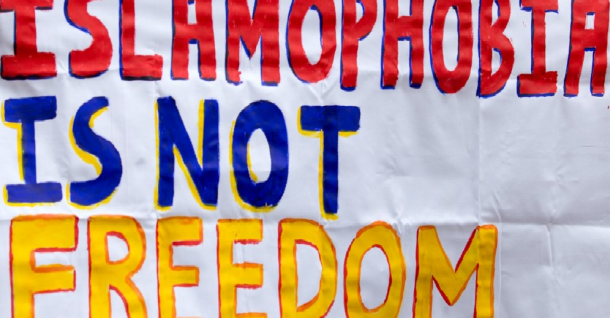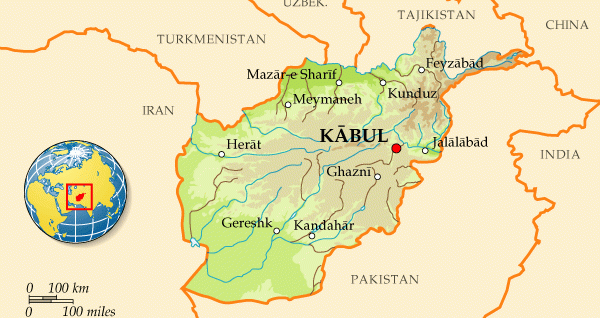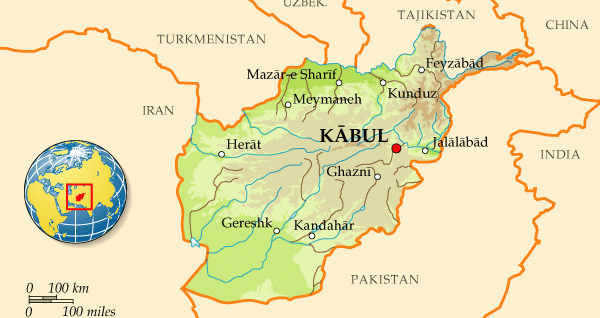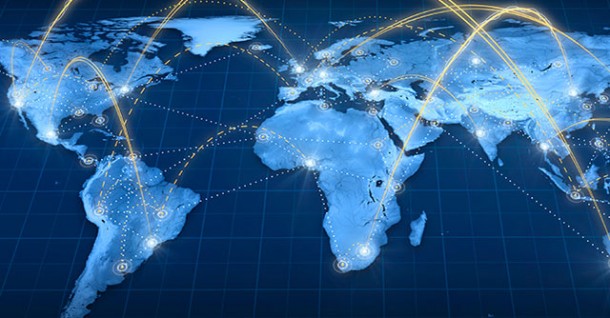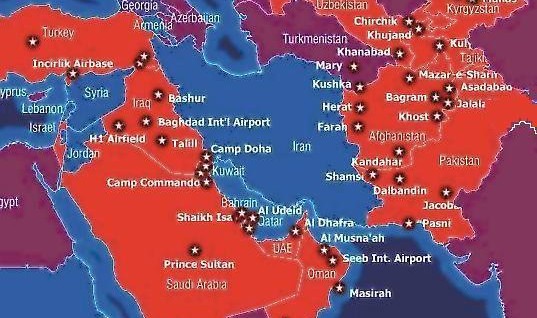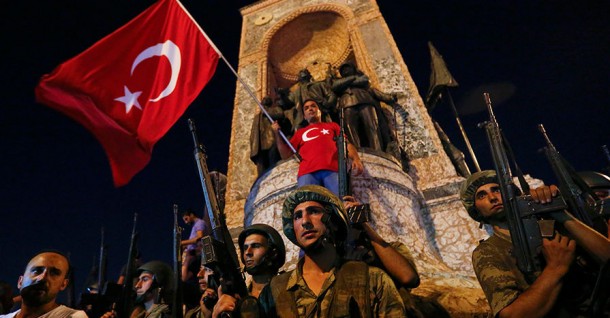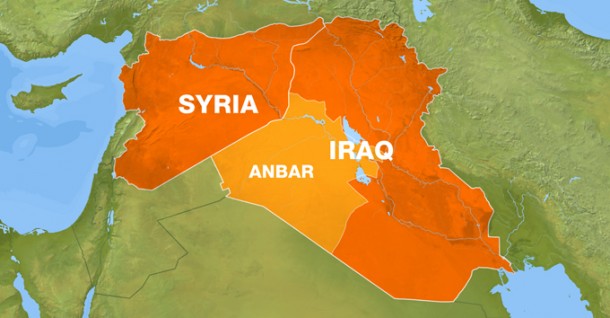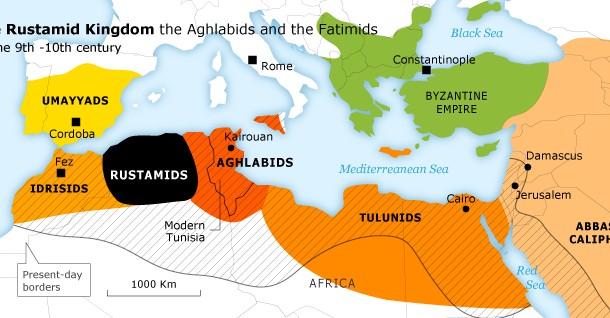The rise of Islamic state of Iraq and Levant (ISIL) group controlling the part of territory of Syria and Iraq became the new phase in the history of extremist groups in the Middle East.
***
The background of extremist groupings similar to ISIL goes to 80th of last century, when U.S. authorities have concluded the secret agreement with Afghan mujahidin promising them all-round support in their fight against USSR, and definitely, this didn’t mean that Afghans had sold themselves to Americans. It’s obvious that Afghans, volunteers and mercenaries from different parts of the world had their own aims. Washington just used the coincidence of interests for their own purposes, since Afghan people could hardly threaten United States geopolitically.
After the war had finished the mujahidin movement found themselves at a loose end, especially the foreigners because most of them became the pariahs in their own countries. Ironically the states which made a lot of efforts to train their prot?g?s began to persecute them strongly now. (Notably that the same thing happens just now – this time with militants fighting in Syria).
As is known in 1989 after the Soviet military withdrawal from Afghanistan the people being the core team in the struggle against the USSR came to power. As a result the regime in Afghanistan transferred to Taliban movement. The ideology acknowledged by the Talibans was very close to that of official doctrine of Saudi Arabia. And this is far from contingence, because the students-refugees educated in religious schools in Pakistan were at the core of Talibans. The schools were organized according to Saudi system and popularized the ideas proclaimed by ibn Abd al-Wahhab. He was a very strict and tough man propagating rigid and radical approaches such as the demand to hide the women faces (though it isn’t obligatory); severe punishments for the small offences and etc.
In fact we can’t call this doctrine as the extreme one, however the followers of this ideological movement often claim to “exclusiveness and truthfulness”. This, in turn, creates the precondition for radicalization that can reduce to uncompromising attitude to everybody who is taking “wrong views” up to blaming them in “disbelief or apostasy”. And one has to understand that it’s impossible to equate one size to fit all – somebody would like to ignore any dialogues accepting only their own rightness whereas the others are ready for compromises and are ready to reappraise their views.
***
In September 11, 2001 in New-York there was the attack of world-famous tower twin. Immediately the new dangerous enemy for the whole civilized world the omnipresent Al-Qaeda was accused for this. In this context the Americans invaded Afghanistan… The Talibs who were needed for Americans before and who received the huge support from Western world became unnecessary for them. Many fighters moved to different regions. Some part appeared in Iraq in 2003 after Saddam’s overthrow where the ideal conditions for formation of new groups came due to power vacuum happened there. Subsequently one of these organizations developed into ISIL. Initially this groping was considered as the regional section of Al-Qaeda and was led by Abu Musab az-Zarqawi.
After the events in Syria in 2011 the most militants came to this country and became one of the main forces confronting the Syrian authorities. The militants of ISIL have advanced significantly in Syria. After a while the groping became such ambitious that it came into conflict with Syrian oppositionists their former ally once. Furthermore, ISIL declared a war to its former associates in Al-Qaeda. In fact the ISIL’s began to struggle in two and sometimes three fronts.
Thus the successes of ISIL became the strategic stroke for the formidable “Al-Qaeda”, and now it is forced to review the theory of its founders. Their calls were aimed for the armed struggle against “the Jews and crusaders”. However, if we analyze the statistics of Al-Qaeda actions it would be clear that the Muslims have suffered more than the others have.
Nevertheless the new specific peculiarities got notable in the activity of post-alqaedic groups. So the statements that America is the main goal and is number one enemy for the Muslim community have faded away. Perhaps something would change now after Washington attacked Iraq, but the fact is the fact: it happened that some groupings asked the USA for the help, as it occurred, for example, in Syria. Probably such turns come from ideological preference of these groups when the emphasis is made on internal Muslim differences. Thus the fight against Shiites is more important than the fight against the USA and Israel.
***
On June 10, 2014 the militants of ISIL occupied Iraqi Mosul, without receiving any serious resistance from the regular Iraq army. How it happened that this grouping achieved such result in Iraq? The answer is not so simple and definite. One of the reasons of ISIL advancement is the agreement with some Sunni tribes and part of the remained members of the former ruling Baath Party. The later are professional militants and have the huge experience in organization and conducting military actions. Thus among those who joined the ISIL is the former general of Iraq army Azhar al-Obeidi. The leader of the Baasists in the closest Saddam’s associate ex-minister for foreign affairs of Iraq Izzat ad-Douri.
We should note that the Baasists and the elders of the tribes have concluded the agreement with militants as the revenge to Iraq former prime-minister Nuri al-Maliki. His short-sighted and narrow-confessional politics played a certain role in ISIS advancement in Iraq.
We shouldn’t ignore the statements of Kurd officials saying that Washington and London were informed about the preparations of militants to attack the North of Iraq. The fact that they didn’t do anything to prevent this attack clearly shows the far-reaching projects of the Western states in Middle Eastern region.
In this respect the questions how ISIL has been sponsored and how it has been made become important. It’s not a secret that initially the financing was coming from the states of Persian Gulf. But now this extremist grouping probably is financially independent because the rich oilfields are seized by them.
Concerning the military training as per some sources the training of militants could be conducted in the territory of Jordan. And most probably it was controlled by the forces who intended to reach their own objectives using the militants’ hands. But if the USA can feel safe for their power the other countries that helped to grow the new monster may pay for their shortsightedness.
***
After ISIL advancement in Iraq and Syria the question may arise – what is the future of this on all sides important region? Now and the USA being blind to the events in Iraq before “all of a sudden” started to show their activity in the fight against extremists. It’s interesting that this “all of a sudden” began at the moment when the militants of ISIL attacked the capital of Kurdistan Erbil city where the centers of many transnational corporations were located. Noteworthy is the fact that Americans carry out intelligence flights over Syrian territories occupied by ISIL.
There is another famous event showing the seriousness of the states intentions in the struggle against extremists. It is the visit of the deputy minister for foreign affairs of Iran to Saudi Arabia where he had the meeting with the head of the MFA of Saudi Arabia. ISIL threatening the national security of these states forced “the bitter friends” to get down to negotiation in order to work out the general strategy in the “struggle against extremism and terrorism”.
***
Probably the activity of ISIL had already reached its peak and in the future its activity would decline. Because as it was mentioned before the grouping is fighting not only against the official Damask but it opposes to all oppositional forces including even Jabhat an-Nusra the official branch of Al-Qaeda in Syria. The situation in Iraq is gradually stabilizing after the new prime has come to power.
It’s that the politics pursued by extremists using the violence, compulsion, multiple executions, ethnic cleansings, threatening and terrors, temples destroy, claims on disbelief will not have the future in the region where the inter confessional and international relations are going on for centuries. Nevertheless this destructive force might continue to destroy of Middle Eastern states fulfilling the targets of those who try to create the great number of epicenters of instability, chaos and anarchy.
In this relations the regional states vitally need to put aside all their claims and ignoring the foreign instructions consolidate against the common enemies. As the examples show there is the base for this consolidation and it is more than real. Otherwise the region has the risk to be the scene of constant bloody battles and there won’t be any winners.
Ali Aliev, Muslim Politic-portal expert
![Электронный журнал [Электронный журнал]](/magazine.static/magazine-front.jpg)

